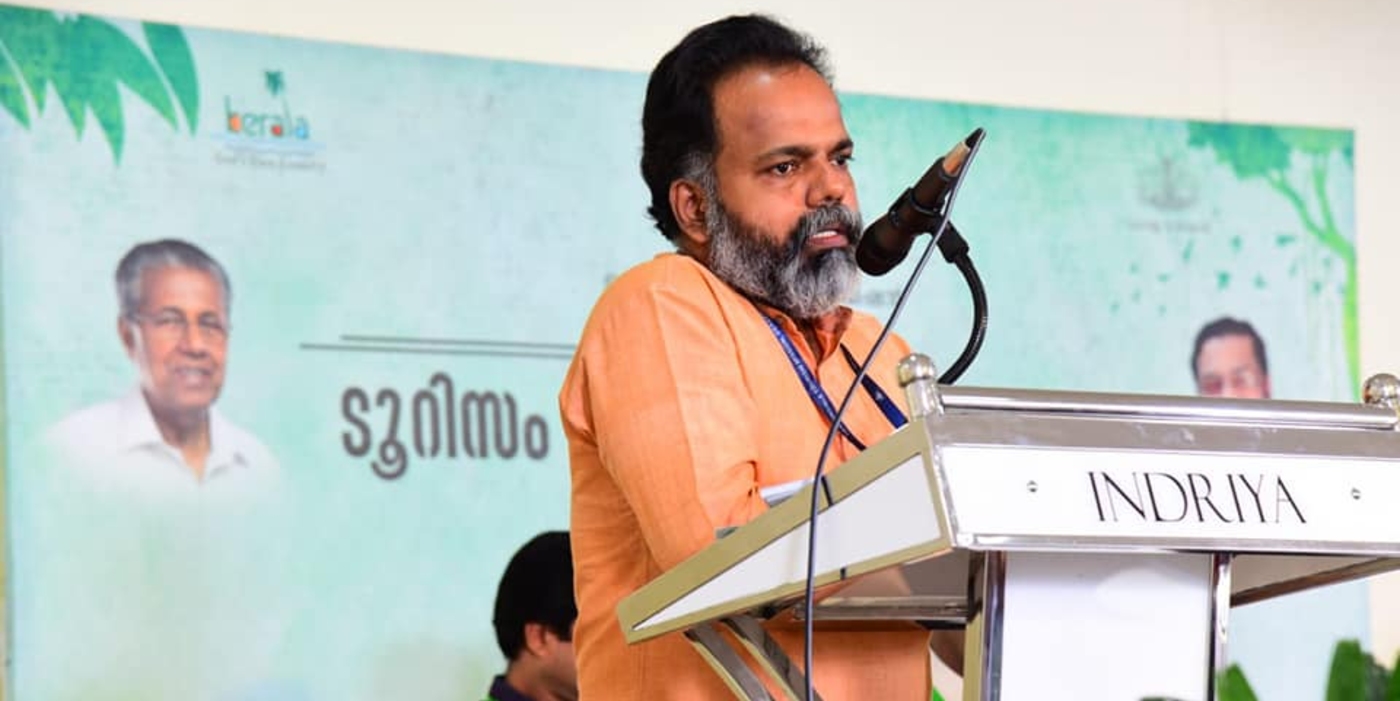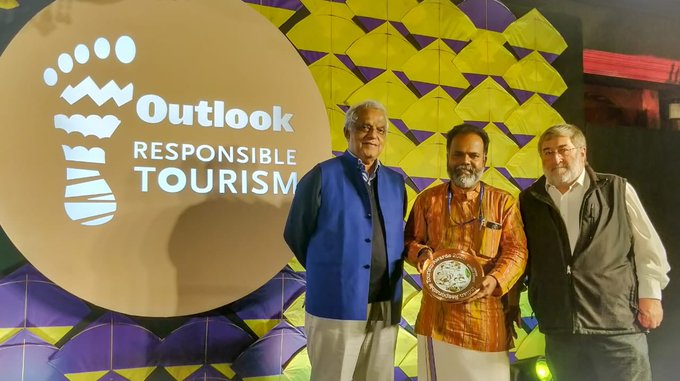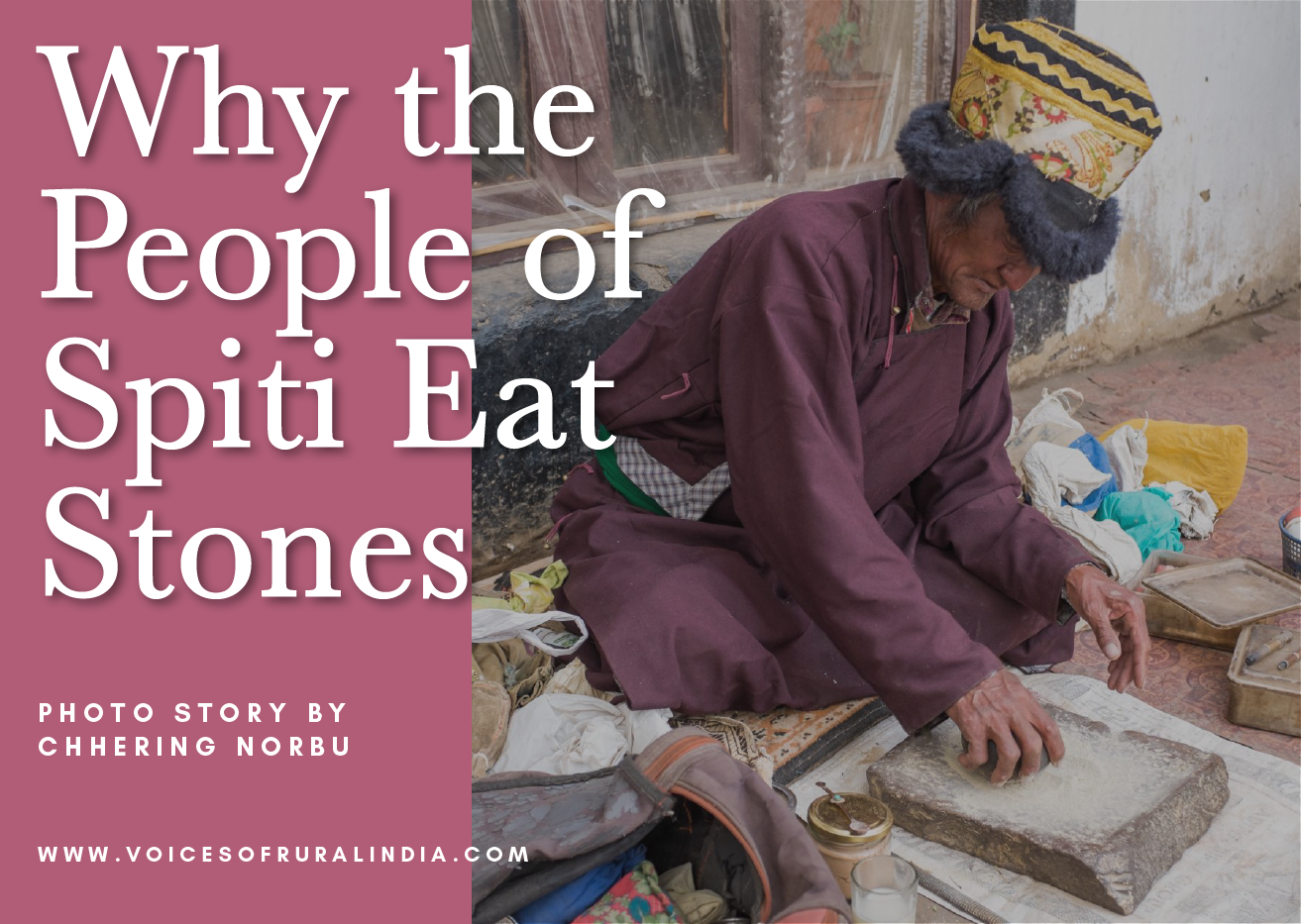
K Rupeshkumar, State Coordinator, Kerala Responsible Tourism Mission, talks about the changing realities of travel and how Kerala is adapting to it
13 April 2020
Kerala has been a leader in Responsible Tourism in the country, having set up the Kerala Responsible Tourism Mission in 2017. Much before establishing the Mission, Kerala had promoted community-led tourism that directly supports local people. Kerala was also the first state to be impacted by Covid-19 in the country, but the state has proactively dealt with the crisis and the number of people infected remains relatively low. However, like the rest of the country tourism in Kerala has also taken a direct and severe hit. The tourism industry in the state has risen up to the challenge and is at the moment focusing on supporting the State in its fight against the pandemic. For instance, around 350 hotels and 300 houseboats in the state have offered their rooms and facilities to be turned into quarantine centers. But, the state’s tourism stakeholders will have to soon focus on the survival and revival of the industry. K Rupeshkumar, the State Responsible Tourism Mission Coordinator of Kerala Responsible Tourism Mission, speaks about the challenges and the possible path forward in this in-depth interview. Edited excerpts:
Q: You have been working closely with rural communities in Kerala, which are connected to tourism, directly or indirectly. What are their primary concerns right now?
Rupesh: One lakh people are affiliated with the Responsible Tourism Mission in Kerala and all of them are going through a tough situation and all units have seen drastic fall in revenue. The loss from the pandemic, for these grass roots units, comes to around Rs 5 crore. The art groups that are part of the RT Mission have not conducted any programmes for a month. The stakeholders of the Village Life Experience Packages—the traditional labourers, community tour leaders, tour guides, auto taxi drivers, taxi drivers, boat owners and drivers—that work with us are deeply concerned about their jobs and livelihood. Our vegetables, fruits and egg production units are also facing heavy losses. Concerns about income generation and the pandemic situation are widespread. Kerala has prevented the spread of disease to a large extent. But those in the tourism industry, especially our small units, are worried about how long the world will take to emerge from the pestilence, as their lives are directly impacted by international issues. The people are concerned about loss of income and bank debt.
Q. How are you planning to safeguard their health and safety? How do you plan to sensitise them and raise awareness? Are there any other steps you're taking to ensure safety?
Rupesh: We started awareness programmes at the grass root level, right from the time when the first case was reported in Kerala. We created awareness around areas like mask usage, washing of hands and use of hand sanitizer. The Government of Kerala started an intensive campaign called ‘Break the Chain’ on these topics and all RT Mission units were part of this. Based on the direction from Mission, our home units started video documentation of their activities, with the video starting and ending with the usage of hand sanitizer. We promoted these videos through online and social media.
We have decided to continue creating awareness about the importance of the usage of masks, sanitizer and hand washing activities even after we overcome this Covid-19 crisis. For instance, Kerala homes used to keep a water-filled kindi, a brass pitcher-like vessel with a spout, on the verandah or entrance and people would use it to wash their hands and feet before entering the house. We want to bring back this tradition in houses, homestays and resorts. We intend to create awareness among the unit members about personal hygiene as well as cleanliness and disinfecting the equipment and tools they use and their surroundings. We are giving online counselling to those in need and this is something we want to continue even after we overcome this crisis.
Q: What kind of alternative livelihood models are you considering for people who are trained for tourism but are unlikely to generate any income in the coming months?
Rupesh: A number of suggestions have been made to the Government for revenue generation and also for creating alternative livelihood models for the RT Mission units in the months that tourism will take to recover. These include:
1. Arranging low-interest or interest-free collateral free loans (minimum of Rs 1 lakh).
2. The Samrudhi Programme of RT, under which women run an ethnic food restaurant, in Kumarakom was a successful model in generating local employment. This model can be replicated in other places too.
3. Make the RT Units to shoot small videos of their activities, performance of artists, cooking videos etc and promote it through a Youtube channel and interested people can watch them and provide small donations.
4. Give emphasis in marketing of homemade products like pickle, jam, dried and value added fruit products in the local markets.
5. Establish RT Mission branded outlets for various products like vegetables, fruits, tender coconut etc.
6. Include milk and egg from RT Mission units for the food supplied in schools and Anganvadis.
7. Online training for the units with new products suitable for local market
8. Use the CSR funds of corporates and divert the service of appropriate units to make the destinations clean and waste free and more environment friendly with a ‘back to nature’ campaign.
9. Marketing the ethnic food network units to local Malayalis.
10. Organise monthly cultural programmes of registered units in the artist network of RT at destinations with nominal fees. This will be post the lifting of lockdown, of course.
K Rupeshkumar (centre) receiving the Judge's Choice Award at the Indian Responsible Tourism Awards 2020
Q. Can you share any positive stories or examples from the communities right now?
Rupesh: Members of the Samrudhi ethnic food unit in Kumarakom are working for the community kitchen to ensure guest or migrant workers and the people who are staying alone in homes get food. A total of 800 people from RT Mission units and RT Mission Resource persons are working as registered volunteers for the supply of food and medicines to those in need during the lockdown period. Five of our unit members are ensuring street dogs are also fed during this period. A total of 100 women RT Mission unit members are working as a part of mask making units.
Q. How do you think tourism in Kerala will change in the post-Covid scenario?
Rupesh: We cannot expect the interstate and international travel to become normal in the near future. Hence an organised campaign is essential to persuade Keralites to explore various parts of the state. Once travel opens up, people above the age of 50 or 60 may limit their leisure travel to their own countries or neighbouring countries because of the fear created by Covid. So Kerala RT Mission will focus on campaigns focusing on domestic travellers. The focus could be on programmes for the younger generation, like honeymoon tourism and adventure tourism that includes experiential tourism activities thorough RT Mission. Another area could be skill development programmes at village level for single travellers in arts & crafts or farming and afforestation skills. There will also be a requirement for low budget packages for tourists as spending capacity will be lower after the crisis.
Q. What are the most important steps to take, both in the short term and in the longer term, for all rural tourism initiatives across the country?
Rupesh: I believe the world will decisively move towards Responsible Tourism after this pandemic. So it will be important to create intensive marketing campaigns for Responsible and Rural Tourism Activities.
In spite of all hurdles and fears, I think people will not forget their passion for travel. But due to the fear of the virus, people will not choose big destinations and will try to avoid crowds. This creates an opportunity for promoting experiential travel and rural tourism activities. But different strategies should be adopted for the promotion of Responsible and Rural Tourism Activities.
In the short term targeting local tourists, promoting study-focused rural holidays, creating local festival packages for families within the same state, promoting food trails for youngsters and groups like urban techies and tailoring marketing campaigns focused on rural tourism will be needed.
In the long term, the government can help by promoting rural tourism to all those who have the LTC option. Positive stories should be promoted about the infrastructure, facilities and health care system of the nation and states. For instance, around 4,000 tourists who were in Kerala when the lockdown was announced were taken care of under the expense of the Department of Tourism. Also, eight foreign tourists were cured of Covid-19 in Kerala. Such stories need to be amplified. While luxury travel may take time to recover, luxury in experiences should be promoted.








1.jpg)